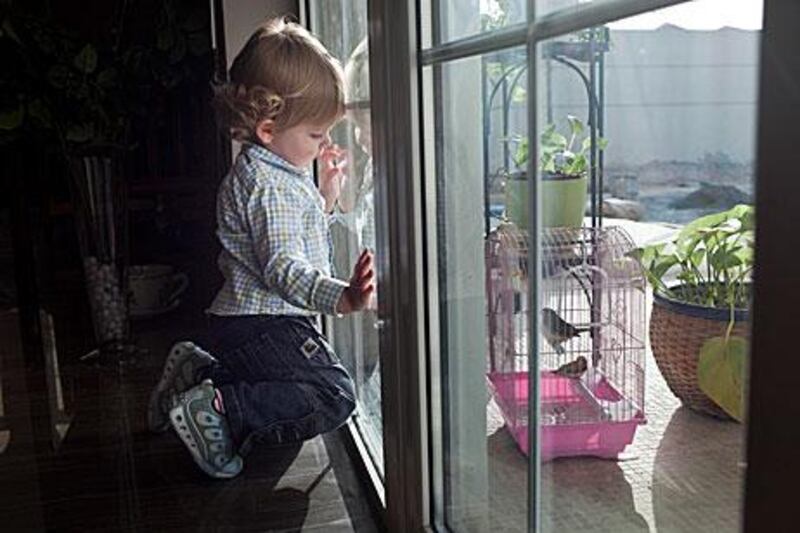DUBAI // Randa M never thought she would find herself in a fertility clinic, choosing her child's gender.
Three years after giving birth to a baby girl, the Lebanese couple were ready to have their second child. They wanted only two children, and Randa's husband was keen to have a son. He had heard about pre-implantation genetic diagnosis, a test conducted after in-vitro fertilization (IVF) used to determine if an embryo has any chromosomal abnormalities before it is implanted.
However, the same test can also be used to identify a baby's gender.
"At first I didn't feel the need to go through IVF," she said. "I didn't have a fertility problem so why do it? I also didn't mind if I had another girl; my daughter would have a sister.
"But my husband was really upset. His whole life he dreamed and planned for a boy. I felt really guilty and started to Google other methods."
"I started buying ovulation kits, but every time my husband would have a flight for work," she said. "We kept trying for six months but it didn't work out and my husband was frustrated."
The couple decided to travel to Lebanon to look at their options. After finding out about all the hormone injections involved with IVF, Randa was discouraged.
Then she discovered natural cycle IVF, which requires no fertility drugs. Although this reduces the chances of success, since only one egg is extracted, Randa chose the process. But the egg did not fertilise.
After having a chat with a friend, she discovered another procedure.
"I was complaining and telling her that my husband really wants a boy and he refuses to have another child if there's a slight chance it's a girl," she said. "So she told me about Dr Michael Fakih who came from the US and opened up a clinic in Dubai."
Ten days after her first visit, the doctor harvested 10 eggs, of which eight fertilised. Further testing through PGD found that four of the embryos were male and the other four were female. Of the four male, one had Down Syndrome. Randa, then 40, had the three remaining healthy male embryos implanted into her uterus. A couple of weeks later, she was pregnant and eventually gave birth to her son, Jad.
She said both her children give the family a sense of fulfilment.
"When I found out it worked, I was over the moon," she said. "I was doing it for my husband and I didn't care if it was a boy or a girl, but I really felt so blessed."
Although the couple chose gender selection for the purpose of family balancing, Randa said the procedure should be monitored.
"Ethically speaking, this should be for those who really want to balance their families, whether it's a boy or a girl," she said. "But we don't want the whole world to be one sex. There should be a body that looks into the family's history, sees if they've had children before and sets the terms so that it is not exploited."
The focus should be kept on the important benefit of PGD, which is its ability to identify potential disorders.
"One of my embryos had Down Syndrome. What if I didn't know?" she said. "I would recommend it to women over 35 because the chances of conceiving a healthy baby are much higher and it would give them peace of mind."





